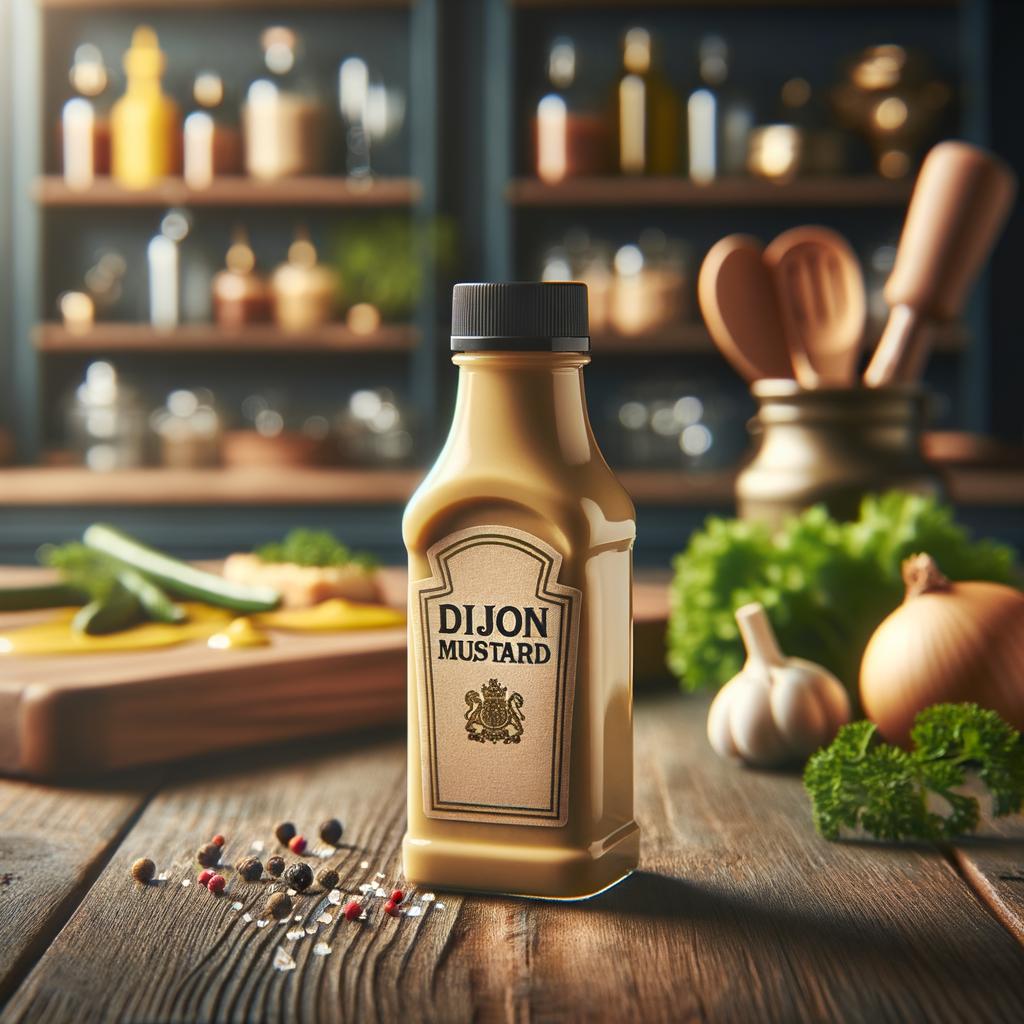Dijon Mustard

Description
Dijon Mustard, a beloved ingredient in gastronomy, is a smooth and creamy condiment, known for its distinctive pale yellow color and velvety texture. It emanates a balanced flavor profile that is both sharp and smooth, with a sophisticated hint of white wine that sets it apart from its mustard counterparts. This elegant condiment is named after the city of Dijon, the capital of the Burgundy region in France, which is renowned for its wines. Unlike other mustards, Dijon mustard uses white wine instead of vinegar, creating a uniquely smooth and rich flavor that is less acidic and more refined.
Primary Uses
Dijon Mustard is a versatile ingredient that is used widely in cooking and food preparation. It is a key component in French cuisine, often used as a base for many dressings, marinades, and gourmet recipes. It adds a tangy kick to sandwiches, a creamy depth to sauces, and a bold flavor to roasted meats. Beyond its culinary uses, Dijon Mustard is also known for its medicinal properties, traditionally used to aid digestion and stimulate the appetite.
History
The history of Dijon Mustard dates back to the Roman times, where it was first used as a culinary and medicinal ingredient. The Romans introduced this mustard to Gaul, where monks in the region of Dijon began cultivating it. Over centuries, Dijon became the mustard capital of the world, and in the 18th century, it began to be made with verjuice, the acidic juice of unripe grapes, which later evolved into the use of white wine. The recipe for Dijon mustard, however, has remained largely unchanged since 1856, when Jean Naigeon substituted verjuice with white wine to create the mustard we know today. There's an intriguing myth that Dijon mustard was used as a symbol of faithfulness in medieval times. A bride and groom would each swallow a spoonful of the mustard to ensure their loyalty to each other.
Nutritional Information
Dijon Mustard is not only a flavorful addition to your dishes but also a nutritious one. It is low in calories and fat, making it a healthier alternative to mayonnaise or butter. It is a good source of selenium, a powerful antioxidant, and magnesium, which is essential for bone health. It also contains small amounts of fiber, protein, and a variety of vitamins and minerals. While Dijon mustard is indeed beneficial, it should be consumed in moderation due to its high sodium content. Compared to other mustards, Dijon mustard has a more refined flavor and a smoother texture, but it shares a similar nutritional profile with its mustard relatives.

